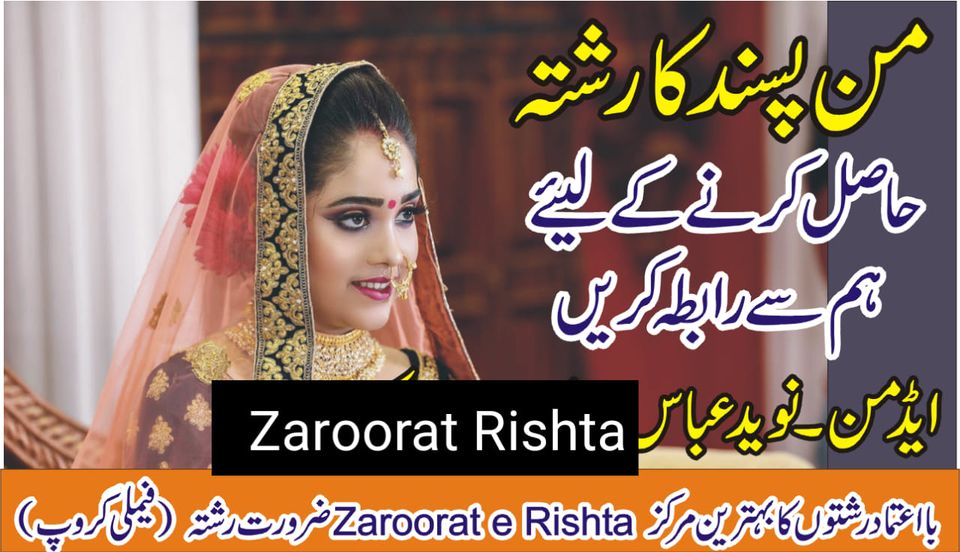In Pakistan, the concept of “Rishta” transcends mere matchmaking; it embodies a complex intertwining of tradition, culture, and societal norms. Derived from the Urdu word “رشتہ” which means relationship or bond, Rishta is deeply rooted in the fabric of Pakistani society, playing a pivotal role in the process of finding a life partner.
The Significance of Rishta:
Rishta serves as a bridge between families seeking matrimonial alliances. It symbolizes the union not just of two individuals but of their families, communities, and sometimes even their entire social circles. In Pakistan, where family bonds hold paramount importance, the notion of Rishta is laden with emotional, cultural, and societal significance.
The Traditional Approach:
Traditionally, the responsibility of finding a suitable Rishta falls upon the family elders, particularly parents, who actively engage in the process. This involvement reflects the collective mindset prevalent in Pakistani society, where familial approval is deemed essential for a successful marriage.
The Matchmaking Process:
The process of seeking a Rishta involves various stages, each marked by cultural customs and societal expectations. It typically begins with informal inquiries within one’s social network, followed by the exchange of bio-data, photographs, and family backgrounds. Once a potential match is identified, families arrange meetings, often facilitated by intermediaries or matchmakers known as “Rishta aunties” or “Rishta uncles.”
Cultural Considerations:
In Pakistan, the criteria for an ideal Rishta extend beyond personal compatibility to encompass factors such as caste, tribe, social status, and financial stability. While modernization has brought some flexibility in these criteria, they continue to influence matchmaking decisions, especially in rural areas and conservative communities.
The Role of Technology:
With the advent of technology, the traditional Rishta system has undergone significant transformations. Online matrimonial websites and social media platforms have emerged as popular avenues for seeking alliances, offering individuals greater autonomy and access to a wider pool of potential matches. However, these platforms also pose challenges, including authenticity concerns and the commodification of marriage.
Contemporary Challenges:
Despite its enduring significance, the institution of Rishta is not immune to contemporary challenges. Rapid urbanization, changing lifestyles, and evolving gender dynamics have led to shifts in marriage patterns and preferences. Moreover, societal pressures, unrealistic expectations, and the rising trend of dowry demands contribute to the complexities surrounding Rishta.
The Evolving Landscape:
In recent years, there has been a growing emphasis on promoting transparency, consent, and inclusivity within the Rishta process. Initiatives such as pre-marital counseling, legal awareness campaigns, and advocacy for women’s rights aim to address issues of coercion, abuse, and exploitation.
Conclusion:
The tradition of Rishta in Pakistan encapsulates the essence of familial bonds, cultural values, and societal norms. While it continues to play a central role in the matrimonial landscape, its dynamics are evolving in response to changing demographics, attitudes, and technological advancements. As Pakistan navigates the delicate balance between tradition and modernity,
